|
Genres, Themes, Actors, and Directors:
- Harry Belafonte Films
- Love Triangle
- Mel Ferrer Films
- Nuclear Holocaust
- Post-Apocalypse
- Race Relations and Racism
- Science Fiction
- Survival
Review:
This unusual post-apocalyptic flick — unfairly maligned by many critics — is both engaging and provocative. While it starts out as a fairly standard tale about “the last man on earth”, about halfway through it veers off course to explore a much more intimate concern: what would happen to societal norms and prejudices if all the rules suddenly changed? Would we hold on to our prior conceptions about race, class, gender, and sexuality, or allow ourselves to move beyond these narrow constraints? Made during an era when anti-miscegenation laws were still in effect in many southern states, this film boldly explores these very issues, and while the story’s outcome may be too pat, the scenes leading up to it hold true tension and pathos.
Several reviewers have argued that Mel Ferrer’s appearance disrupts the flow of the movie, but I disagree.
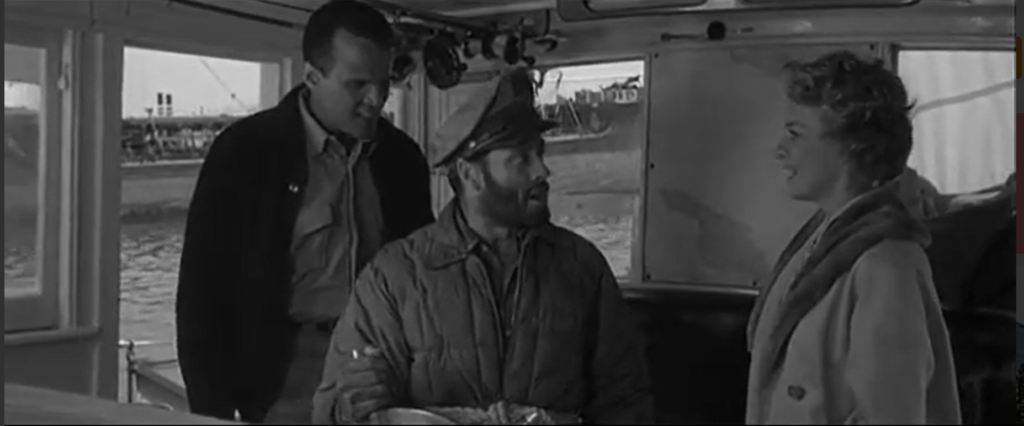
His character is an essential narrative catalyst — the one-dimensional “devil” of the movie’s title — and his presence is meant simply to provoke a final confrontation between the film’s primary protagonists (Belafonte and Stevens). It is their mental processes — conflicted, nuanced, and very real — which hold our interest.
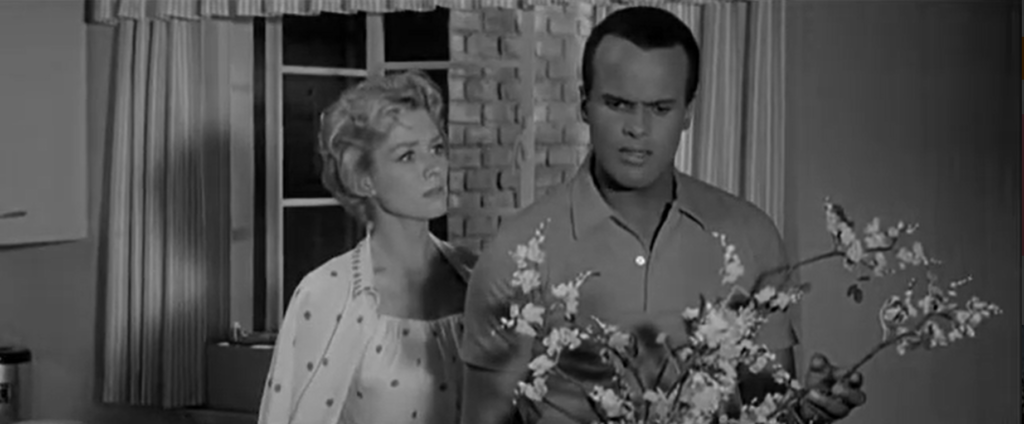
While Stevens does a fine job, however, Belafonte truly steals the show: he is alone on-screen for the first 35 minutes of the movie, and more than able to hold our full attention. He amazes us with his ingenuity, moves us to empathetic tears, and demonstrates a remarkably upbeat, can-do attitude towards his situation (note his interactions with the two mannequins he brings to his apartment).
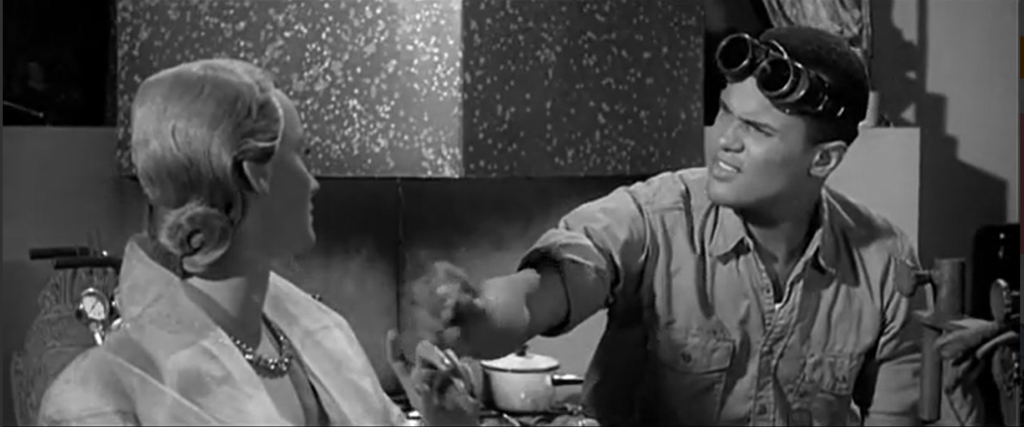
His hesitance in expressing his love for Stevens carries all the weight of a lifetime filled with prejudice — yet his decision in the final climactic moments of the movie shows that he still has hope for a better future.
Redeeming Qualities and Moments:
- Harry Belafonte as one of the last men left alive on Earth
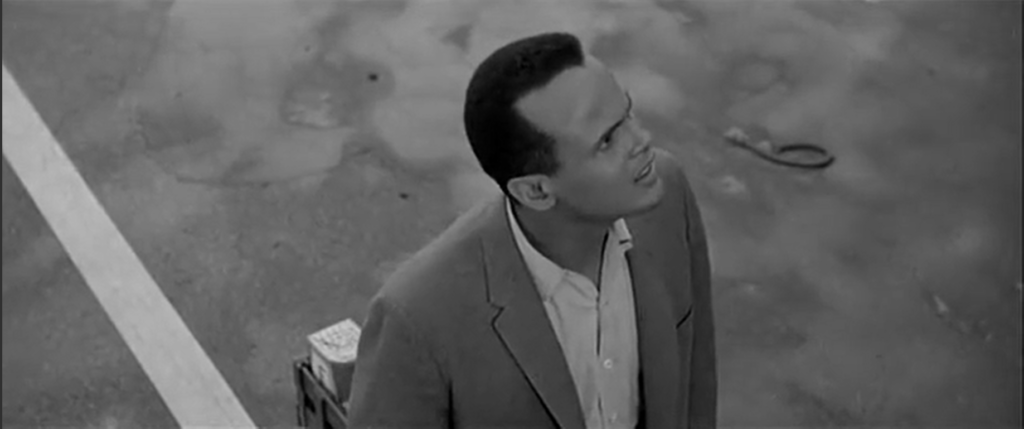
- Belafonte listening to a tape of the final newscast ever made

- Desperately lonely Belafonte playing with his own shadow
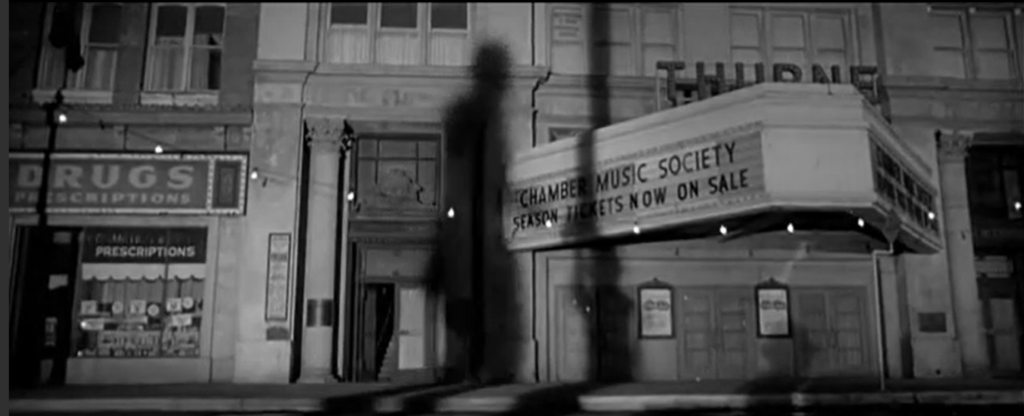
- Dramatic imagery of empty New York streets
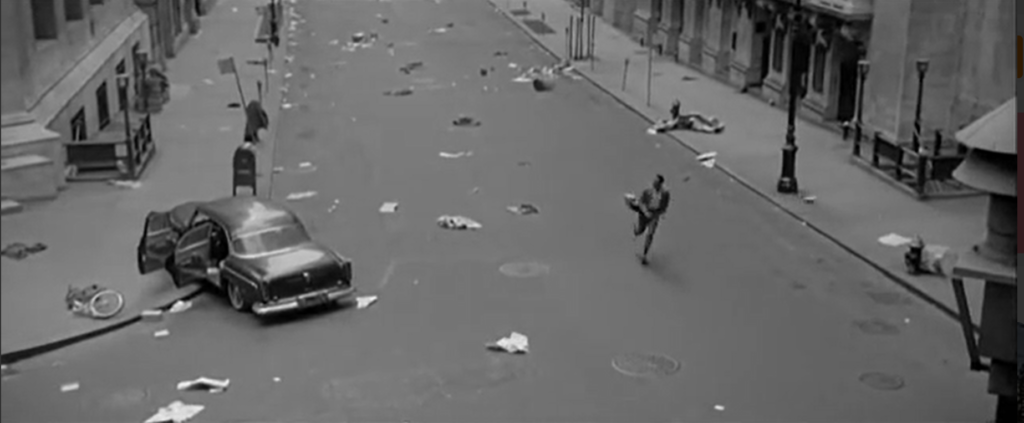
- A provocative exploration of race relations in a post-apocalyptic world
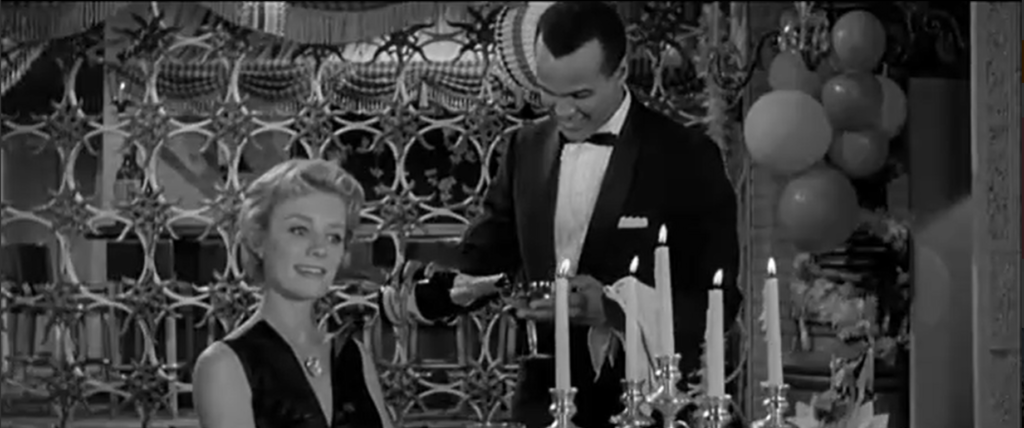
Must See?
Yes. This early post-apocalyptic film is both brave and unique.
Categories
- Historically Relevant
- Noteworthy Performance(s)
Links:
|
One thought on “World, the Flesh, and the Devil, The (1959)”
A must.
I agree that this is a “brave and unique” film – even if I think the first 1/2-hour is rough-going – esp. for modern audiences. I wish screenwriter/director MacDougall had found a more economic way to get us through this first section (some of Belafonte’s desperation lines just don’t work – “Where are you [all] hiding?! What are you hiding from me for? What did I do?!”; and, simply put, the audience would ‘get it’ in less time…but then it would have been a shorter film).
When Belafonte gets proof of what actually happened to the world, things start getting very interesting – esp. as he’s followed by Stevens.
There is a very powerful scene in the second section in which Belafonte cuts Stevens’ hair – which leads us to what the film is largely about. From that point, unfortunately – though the film doesn’t lose power – we’re suddenly swept into a section involving ‘Who’s going to get the girl?’ (If this film were ever re-made, would they simply have a 3-way so they could get on with more important things?) Interestingly in this section, Stevens briefly gives in to Ferrer with the statement, “Make me forget everything!” The moment makes one wonder about one of the intentions of the gift of sex.
As filmed, the last five minutes or so are particularly eerie.
[Final note: Stevens had a sad life. Reading about her at http://www.imdb.com is sad indeed.]